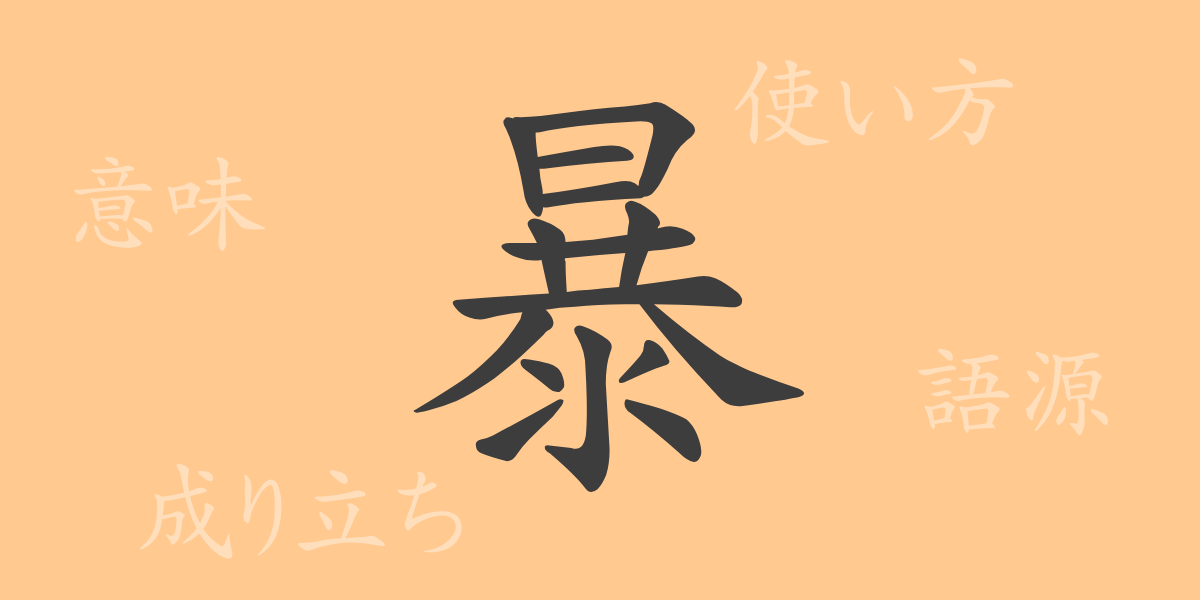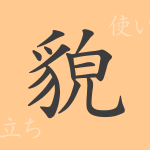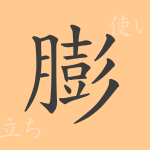There are numerous kanji characters in the Japanese language, each with its own unique history and meaning. In this article, we will focus on the 常用漢字 (jōyō kanji) “暴” (bō), exploring its origin, meaning, usage, and related idioms and phrases. While “暴” (bō) is frequently used in daily life, its rich historical and cultural significance is not widely known. This article aims to delve into the full scope of “暴” (bō) and deepen your understanding of this character.
Origin of 暴 (bō)
The kanji “暴” (bō) evolved from ancient Chinese pictographs. Originally, it combined the symbol “日” (nichi), representing the sun rising and shining, with “㠯” (yori), which signifies a powerful hand or action. Over time, these elements merged to depict excessive force, leading to meanings such as “violence” or “rampage.” Thus, “暴” (bō) became established as a character indicating extreme exertion of power.
Meaning and Usage of 暴 (bō)
The kanji “暴” (bō) carries meanings such as “forcibly” or “without restraint.” In a social context, it can refer to actions that violate public order or break the law. Common usages of “暴” (bō) include words like “暴力” (bōryoku – violence), “暴動” (bōdō – riot), and “暴露” (bakuro – exposure). These terms are frequently heard in everyday conversations and news, making it essential to understand the meaning of “暴” (bō).
Reading, Stroke Count, and Radical of 暴 (bō)
Here is the basic information about the kanji “暴” (bō):
- Reading: The on’yomi (音読み) is “ボウ” (bō), and the kun’yomi (訓読み) readings are “あば.く” (aba.ku) and “あば.れる” (aba.reru).
- Stroke Count: “暴” (bō) consists of 15 strokes in total.
- Radical: The radical is “日” (nichi-hen).
Idioms, Phrases, and Proverbs Using 暴 (bō)
There are numerous idioms, phrases, and proverbs that include “暴” (bō). Here are a few examples:
- 暴力 (bōryoku): The use of force without restraint.
- 暴露 (bakuro): To reveal hidden facts publicly.
- 暴走 (bōsō): To act recklessly without self-control.
- 横暴 (ōbō): Unreasonable and violent behavior.
- 「暴言を吐く」 (bōgen wo haku): To speak rude and aggressive words.
- 「暴れる牛に鈴をつける」 (abareru ushi ni suzu wo tsukeru): To take measures to control a troublemaker or a difficult situation.
These expressions showcase the richness of the Japanese language and help in understanding the various nuances of “暴” (bō).
Summary of 暴 (bō)
The kanji “暴” (bō) has evolved from ancient times to the present, symbolizing excessive exertion of power. This character plays a crucial role in the Japanese language, appearing in words like “violence” and “tyranny.” Additionally, idioms and phrases involving “暴” (bō) reflect Japanese culture and values, offering insights through language. We hope this article helps you gain a deeper understanding of “暴” (bō) and encourages you to further explore the rich world of the Japanese language.

























